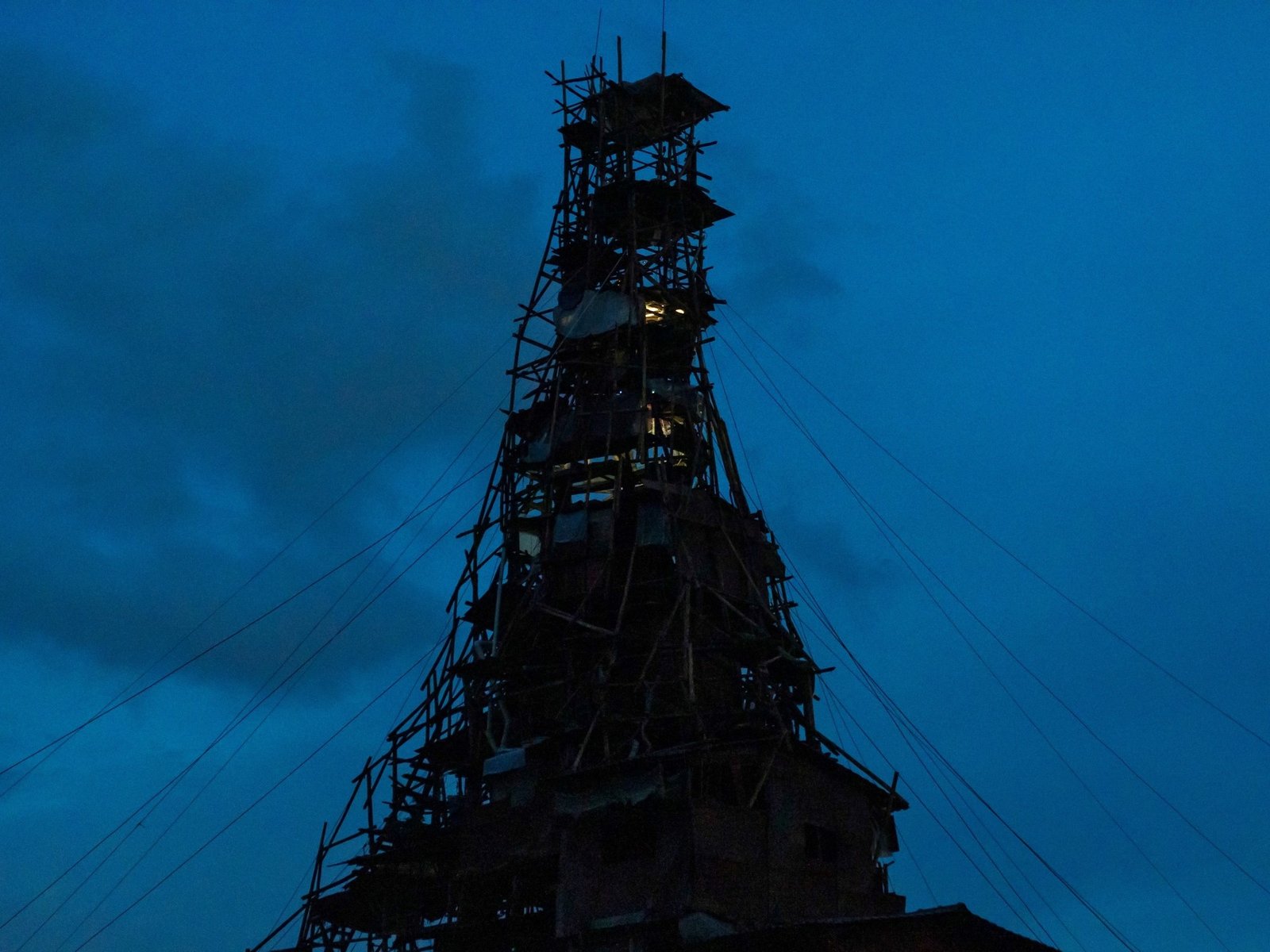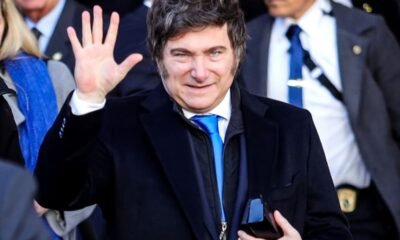INTERNACIONAL
Justice Department moves to unseal Epstein, Maxwell grand jury transcripts amid calls for transparency
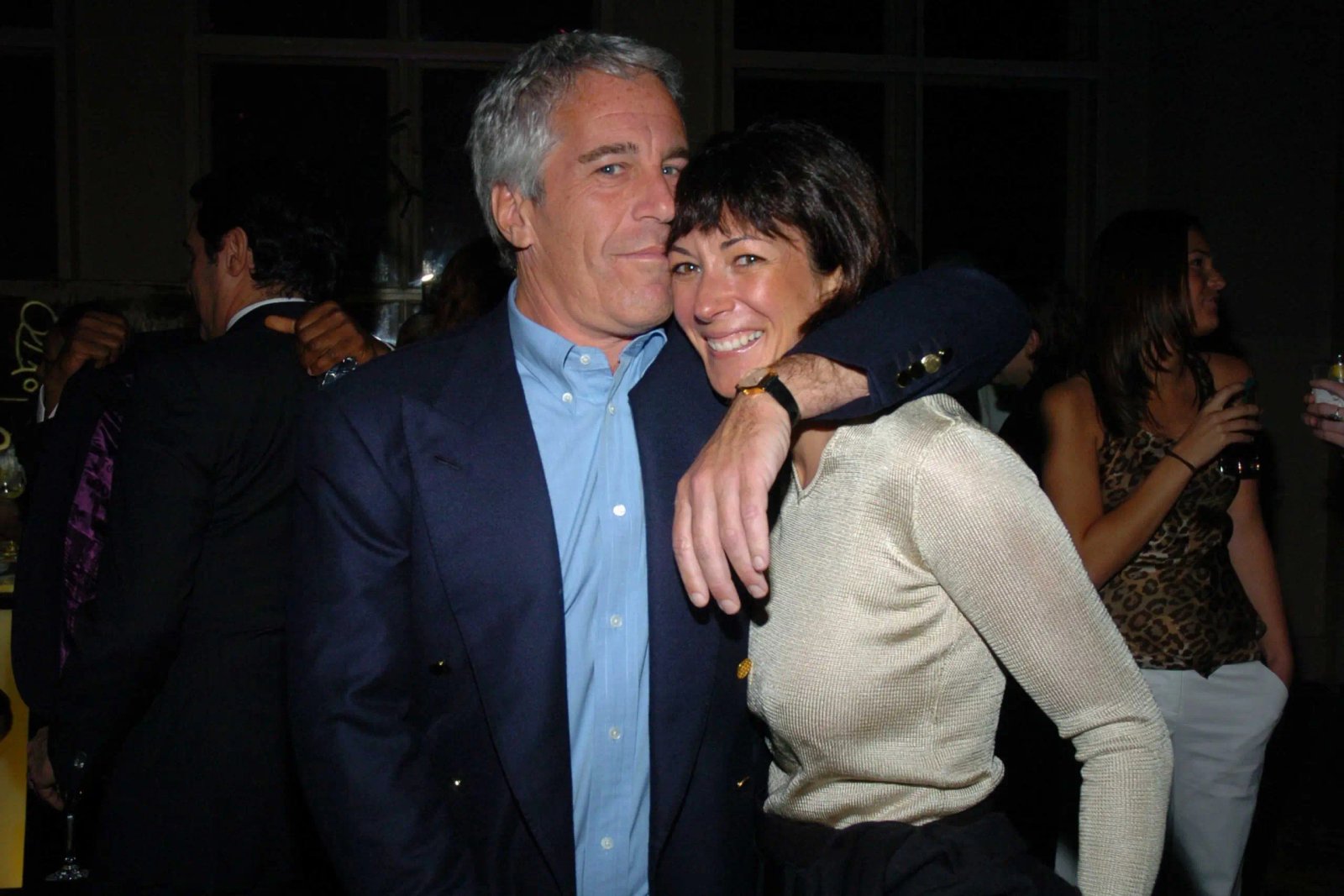
NEWYou can now listen to Fox News articles!
At Attorney General Pam Bondi’s direction, the Department of Justice (DOJ) on Friday formally moved to unseal long-secret grand jury transcripts from the Jeffrey Epstein case, citing what it called intense public interest in the notorious sex trafficking investigation.
Deputy Attorney General Todd Blanche submitted the motion in Manhattan federal court, urging a judge to release the transcripts from Epstein’s 2019 grand jury proceedings and those from the prosecution of Epstein’s convicted associate, Ghislaine Maxwell, as part of a new transparency push by the department.
Earlier this month, the DOJ and FBI issued a memorandum describing an «exhaustive review» of their Epstein investigative files. That internal review sought to determine if any evidence could justify charging additional individuals, but it concluded that «no such evidence was uncovered» against any uncharged third parties.
Since the memo’s July 6 release, officials say, public interest in its conclusions has remained high.
DOJ REJECTS GHISLAINE MAXWELL’S APPEAL IN SCOTUS RESPONSE
In this 2005 photo, infamous pedophile Jeffrey Epstein poses with his arm around longtime confidante and co-conspirator Ghislaine Maxwell. (Joe Schildhorn/Patrick McMullan via Getty Images)
While the department maintains it stands by the memo’s findings, the filing emphasizes that «transparency to the American public is of the utmost importance to this Administration.» Given the intense public interest, the DOJ told the court it is moving to unseal the underlying grand jury transcripts to shed light on its investigative work in the Epstein matter.
The DOJ said it will work with prosecutors to redact all victim names and personal identifying information from the transcripts before any release.
«Transparency in this process will not be at the expense of our obligation under the law to protect victims,» the motion assured.
Epstein, 66, was indicted by a New York grand jury July 2, 2019, on sex trafficking charges. Just over a month later, on Aug. 10, 2019, he died by suicide in his jail cell while awaiting trial, and the case was dismissed.
LEGAL PATHWAY CLEARLY EXISTS FOR TRUMP’S REQUEST TO MAKE EPSTEIN GRAND JURY TESTIMONY PUBLIC
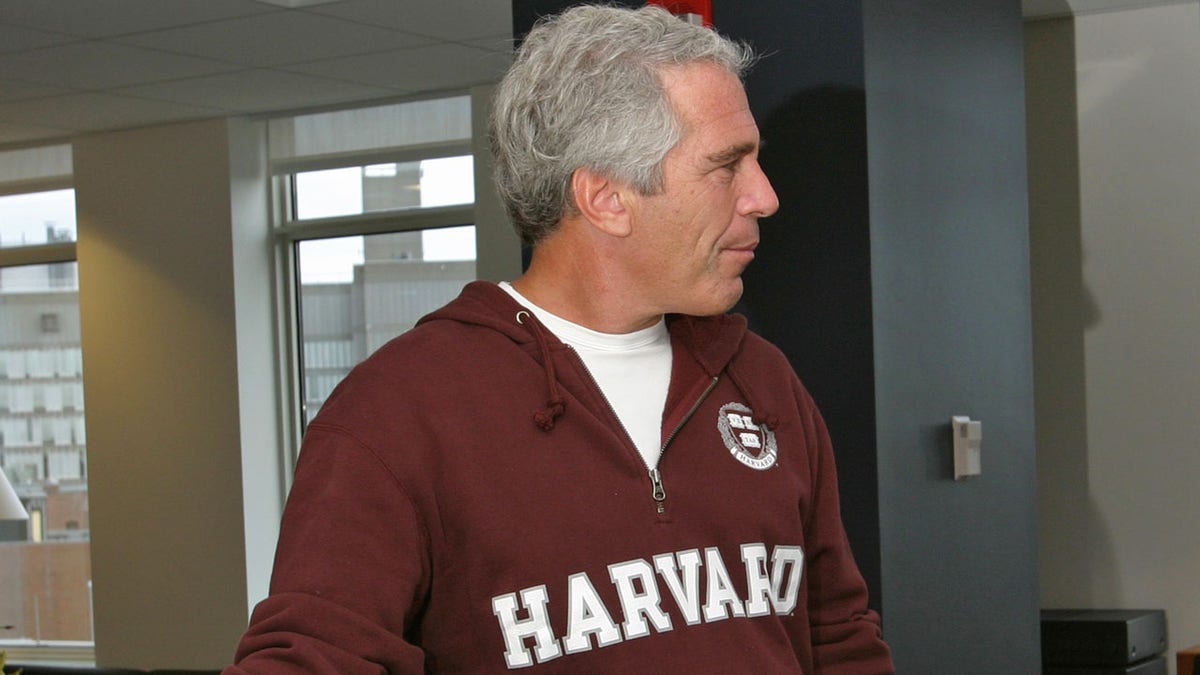
The DOJ’s filing claims it will protect the privacy of Epstein’s victims while unsealing grand jury evidence. (Getty Images)
Epstein’s longtime confidant, Ghislaine Maxwell, was indicted by a grand jury in 2020 on multiple counts related to trafficking and coercing minors.
She was convicted in December 2021 and sentenced to 20 years in prison. Maxwell’s convictions were upheld on appeal in 2024, and she is petitioning the U.S. Supreme Court to review her case.
Grand jury proceedings are ordinarily secret by law, or as the motion says, «a tradition of law that proceedings before a grand jury shall generally remain secret.» But the filing notes this tradition «is not absolute.»
Federal courts have recognized «certain ‘special circumstances’» where releasing grand jury records is appropriate even outside the usual exceptions, like when a case holds significant public or historical importance.
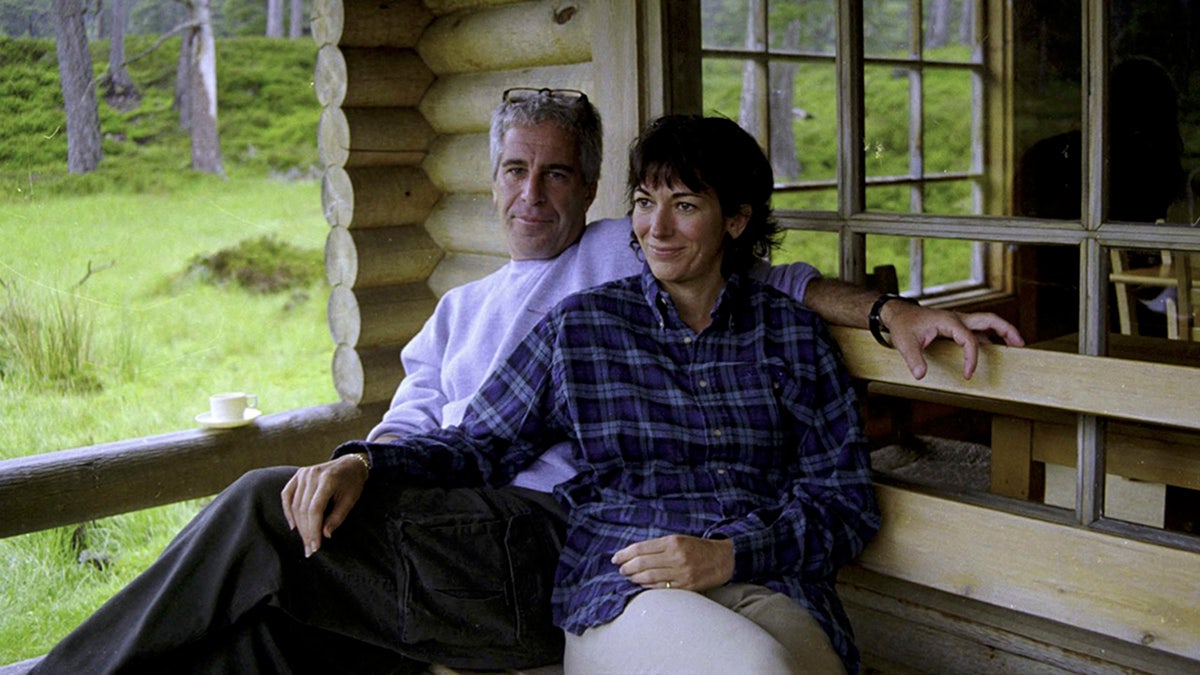
The Department of Justice moved Friday to release evidence and testimony from the grand juries of both Ghislaine Maxwell and Jeffrey Epstein. (U.S. Department of Justice/Mega)
The DOJ argues Epstein’s case is exactly such a special circumstance given its unparalleled notoriety.
«Public officials, lawmakers, pundits, and ordinary citizens remain deeply interested and concerned about the Epstein matter,» the motion notes.
The motion points out that a Florida judge last year ordered the release of some Epstein grand jury records after concluding the financier was «the most infamous pedophile in American history» and that the facts of Epstein’s case «tell a tale of national disgrace.»
By the DOJ’s account, the sealed grand jury transcripts are «critical pieces of an important moment in our nation’s history,» and «[t]he time for the public to guess what they contain should end.»
The motion stresses that Epstein’s death means any privacy interests on his side are now «substantially diminished.» And even though Maxwell is still fighting her conviction, prosecutors said the extraordinary public scrutiny around the Epstein saga justifies pressing ahead with unsealing now.
For these reasons, the DOJ is urging the court to conclude that the Epstein and Maxwell cases qualify as matters of public interest and to grant the unsealing of the grand jury transcripts while lifting any protective orders.
CLICK HERE TO GET THE FOX NEWS APP
The unsealing would shine unprecedented light on one of America’s most notorious criminal cases, a move the department says is legally justified and necessary in the name of public accountability.
The DOJ did not immediately respond to Fox News Digital’s request for comment.
Fox News’ Mike Ruiz contributed to this report.
INTERNACIONAL
«Derrúmbela», le dijeron, pero él siguió construyendo
INTERNACIONAL
Federal judge blocks Trump administration from defunding some Planned Parenthood facilities
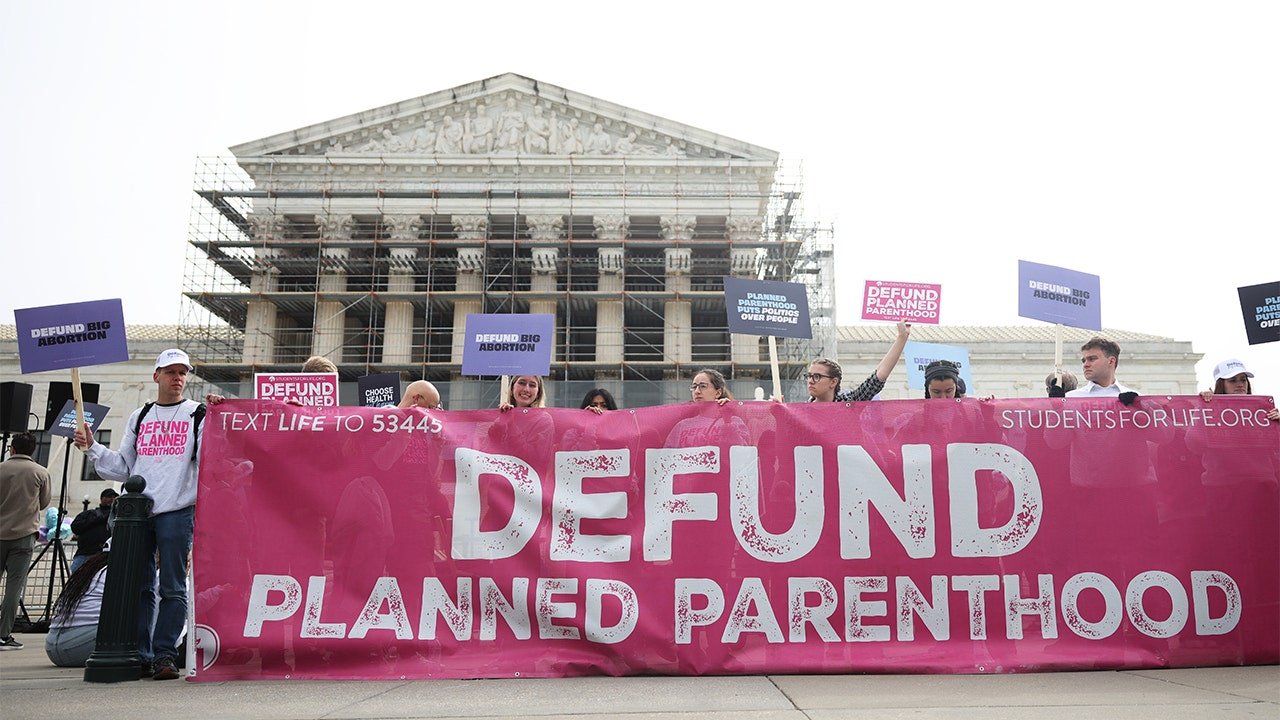
NEWYou can now listen to Fox News articles!
A judge on Monday temporarily blocked the Trump administration from stripping some Medicaid funds from Planned Parenthood after Congress and President Donald Trump agreed to partially defund the nonprofit through passage of the One Big Beautiful Bill Act.
Judge Indira Talwani of the U.S. District Court for the District of Massachusetts said in her order partially granting a preliminary injunction that the bill unconstitutionally punishes Planned Parenthood member organizations that do not provide abortions.
The injunction will risk «at most minimal harm—financial or otherwise» to the Trump administration while the lawsuit proceeds, Talwani, an Obama appointee, wrote.
The judge’s order appears to apply to some but not all Planned Parenthood facilities. The nonprofit said in a statement that it viewed Talwani’s order as a partial win and remained «hopeful» that the judge would take further judicial action down the line.
«This isn’t over,» the organization said. «While we’re grateful that the court recognized the harm caused by this law, we’re disappointed that not all members were granted the necessary relief today.»
SENATE PARLIAMENTARIAN OKS BAN ON PLANNED PARENTHOOD FEDERAL FUNDING IN TRUMP MEGABILL
Pro-life demonstrators gather in front of the Supreme Court building as the Court hears oral arguments over Medina vs Planned Parenthood in Washington D.C. (Kayla Bartkowski/Getty Images)
Talwani’s order arose from a lawsuit brought by Planned Parenthood, the nation’s largest abortion provider, over the One Big Beautiful Bill Act, a massive budget bill that passed Congress this month with no Democrat support. Trump signed the bill into law on July 4.
A provision in the bill stripped Medicaid funding from Planned Parenthood, which the nonprofit said could force it to close about 200 of its 600 facilities and deprive about half of its customers, more than one million people, of services that do not include abortion.
Planned Parenthood attorneys noted in court filings that Medicaid typically does not cover abortion.
JUDGE TORCHED FOR PLANNED PARENTHOOD ORDER: HER COURT LOOKS ‘LIKE A FAST FOOD DRIVE-THRU’

A Planned Parenthood sign (ANGELA WEISS/AFP via Getty Images)
The attorneys argued that the bill would cause cancer and sexually transmitted infections to go undetected, especially for low-income people, and that more unplanned pregnancies would occur because of a lack of contraception access. They said the consequences of losing Medicaid funding «will be grave.»
Department of Justice (DOJ) attorneys had previously argued in court filings that the purpose of the budget provision was to stop «federal subsidies for Big Abortion» by freezing federal funds for certain Medicaid recipients who provide abortions. Weakening Planned Parenthood has been one of the pro-life movement’s leading priorities since the Supreme Court overturned Roe v. Wade.
Talwani granted a temporary restraining order two weeks ago in favor of Planned Parenthood. The judge initially offered no explanation for her decision, a move that led to widespread backlash among Republicans who described it as judicial overreach. Days later, Talwani offered more context in a subsequent order.
PLANNED PARENTHOOD USING ‘LOOPHOLE’ TO GET MINORS GENDER TRANSITIONS WITHOUT PARENTS’ OK: WATCHDOG
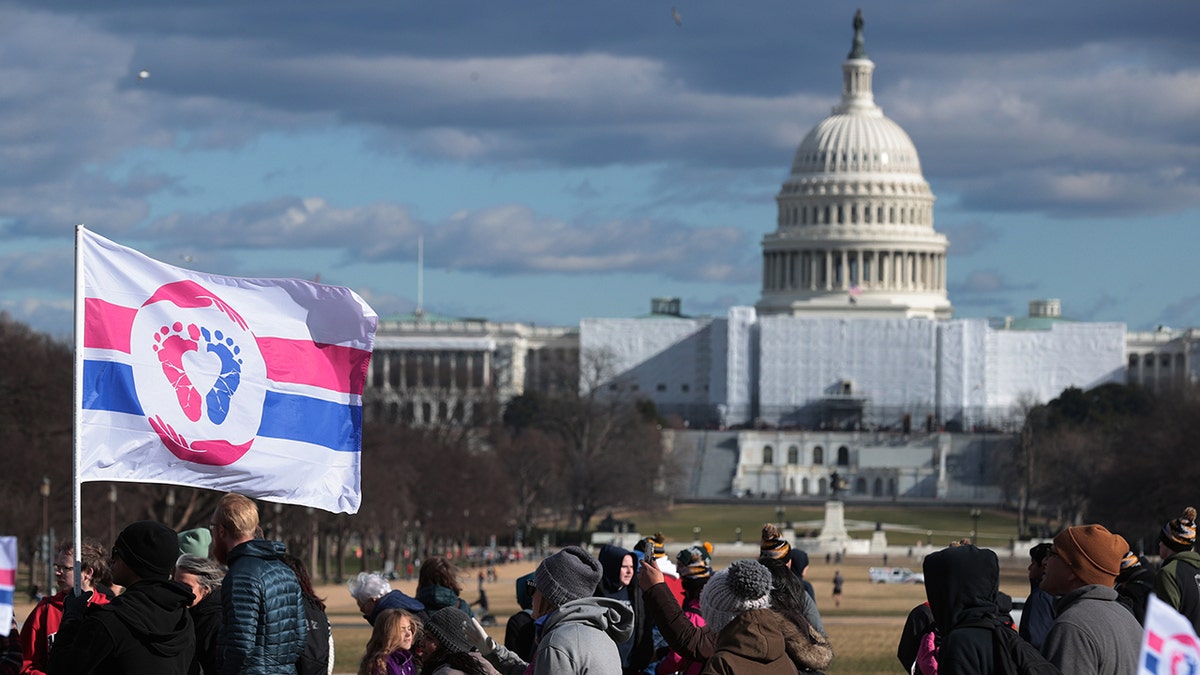
Anti-abortion activists march across the National Mall near the U.S. Capitol during the 50th annual March for Life rally on January 20, 2023 in Washington, DC. (Chip Somodevilla/Getty Images)
The preliminary injunction will partially leave in place the pause on defunding Planned Parenthood indefinitely, but the Trump administration is likely to appeal the order to the U.S. Court of Appeals for the First Circuit.
The judge noted that her injunction applied to Planned Parenthood entities that do not provide abortion services or receive less than $800,000 in annual Medicaid reimbursements.
DOJ attorneys had previously argued to the court that blocking a measure that was passed by Congress and signed by the president was an extraordinary move and unjustified.
CLICK HERE TO GET THE FOX NEWS APP
«Beyond the futility of the claims on the merits, Planned Parenthood fails to demonstrate imminent irreparable harm to justify an injunction, asserting only classically reparable economic injury and irrelevant potential harm to patients, who are third parties not before this Court,» DOJ attorneys wrote.
INTERNACIONAL
“La democracia está amenazada”: la advertencia de Boric en una cumbre de mandatarios de izquierda
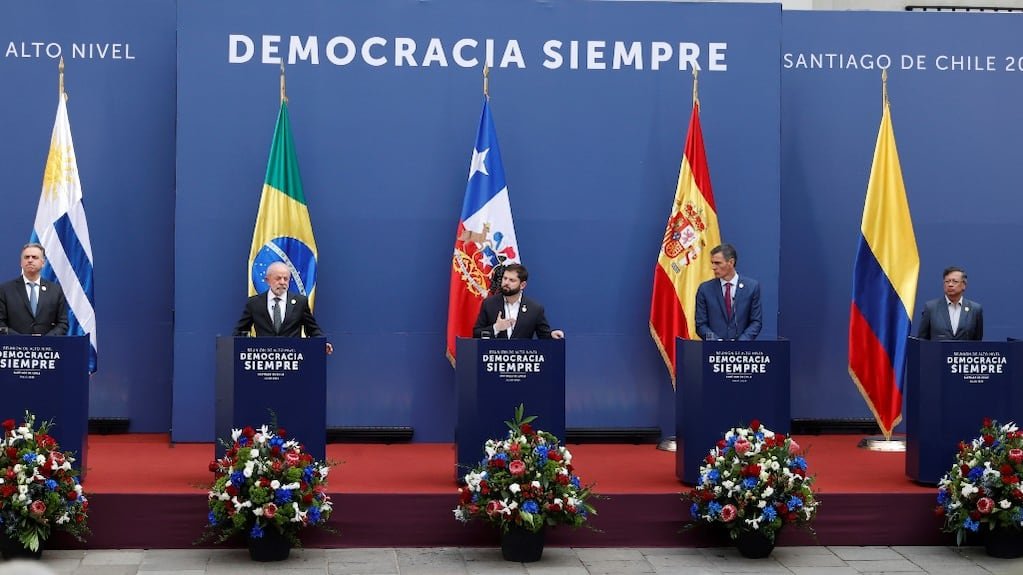
El presidente de Chile, Gabriel Boric, aseguró este lunes que “la democracia está amenazada y esa amenaza no se reduce solamente a la fuerza militar”, durante la inauguración en Santiago de una cumbre que reúne a sus pares progresistas de España, Brasil, Colombia y Uruguay.
“Hoy, en muchas partes del mundo, la democracia está amenazada y esa amenaza no se reduce solamente a la fuerza militar, como sucedió en América Latina durante la segunda mitad del siglo 20, sino que hay elementos más sutiles que atentan contra ella y que terminan naturalizándose”, indicó Boric al inicio del encuentro bautizado “Democracia Siempre”.
Leé también: Israel lanzó una nueva ofensiva terrestre en Gaza, mientras 25 países pidieron poner fin a la guerra
Entre esos elementos, el mandatario chileno destacó “la desinformación, el extremismo de cualquier signo, el avance del odio, la corrupción, la concentración del poder y una desigualdad que socava la confianza en lo público y el estado de derecho”.
Boric recibió este lunes en el palacio de La Moneda a los jefes de Estado o de Gobierno de España, Pedro Sánchez; Brasil, Luiz Inácio Lula da Silva; Colombia, Gustavo Petro; y Uruguay, Yamandú Orsi, para debatir sobre el avance ultra y los autoritarismos.
Las propuestas que resulten de la cumbre se presentarán en otra reunión que se dará en el marco del 80° período de sesiones de la Asamblea General de Naciones Unidas, prevista para septiembre, en Nueva York.
Gabriel Boric cuestionó el extremismo
En su discurso, Boric afirmó: “Algunos, de diferentes signos políticos, presentan el extremismo y el autoritarismo como una solución eficiente, como si bastara solamente con mano dura o con acallar voces, prohibir el disenso, ridiculizar al adversario como una vía para resolver los problemas de fondo”.
Este camino, añadió, “solo asegura retrocesos, margina las mayorías, impone la ley del más fuerte, amenaza a los más vulnerables y sacrifica la tranquilidad por la incertidumbre”.
Luiz Inacio Lula da Silva y gabriel Boric se saludan en el Palacio de la Moneda, en Santiago (Foto: REUTERS/Pablo Sanhueza)
Boric pidió “identificar esas amenazas y no sencillamente apuntarlas con el dedo” y aseguró que “el objetivo de esta cumbre es remarcar la esperanza y ofrecer una alternativa a esas visiones de mundo”.
Además, anunció que los mandatarios de México, Honduras, Reino Unido, Canadá, Sudáfrica, Dinamarca y Australia decidieron unirse a la alianza internacional en defensa de la democracia.
Lula afirmó que el sistema político cayó en el descrédito
En la cumbre, Lula da Silva dijo que “el sistema político y los partidos cayeron en descrédito”, lo que a su juicio fortaleció a la ultraderecha global.
“En este momento en que el extremismo intenta reeditar prácticas intervencionistas, precisamos actuar juntos”, dijo Lula.
Tras una reunión a puerta cerrada en el palacio de La Moneda, los cinco comparecieron ante la prensa, ocasión en la que Lula denunció que el mundo vive “una nueva ofensiva antidemocrática” que, desde su punto de vista, los Gobiernos progresistas deben enfrentar “con acciones concretas y urgentes”.
A su vez, Petro dijo que el progresismo tiene que “encender la luz cuando las tinieblas llegan y empiezan a atemorizar el alma”.
Leé también: Videos del trágico accidente en Bangladesh: un avión se estrelló contra una escuela y hay al menos 19 muertos
Petro aseguró que durante el encuentro los líderes “profundizaron aún más nuestros acuerdos básicos y no tan básicos que tienen que ver con la crisis climática, la inteligencia artificial, la paz del mundo, rehacer la multilateralidad o defender palabras tan básicas como la libertad y la democracia”.
En tanto, Orsi pidió “aterrizar la propuesta de democracia a cuestiones que los pueblos sientan”.
“En la convicción de poner a la democracia por delante y como centro de la futura discusión, muchos más países se van a unir si el objetivo es fortalecer esta forma de convivencia que tiene de tan lejos y tantas vidas y sacrificios nos ha costado”, afirmó.
(Con información de EFE y AFP)
Progresistas, Lula Da Silva, Gabriel Boric, Gustavo Petro, Yamandú Orsi

 POLITICA2 días ago
POLITICA2 días agoJuan Carlos Maqueda defendió la condena contra Cristina Kirchner: “Hay una sensación de que se hizo Justicia y que no hay impunidad”

 POLITICA1 día ago
POLITICA1 día agoExpulsada del Gobierno, Victoria Villarruel empieza a tomar distancia, pero no tiene proyecto político para este año

 POLITICA1 día ago
POLITICA1 día agoLa CGT evalúa adelantar a octubre el recambio de sus autoridades y define una movilización contra Milei

